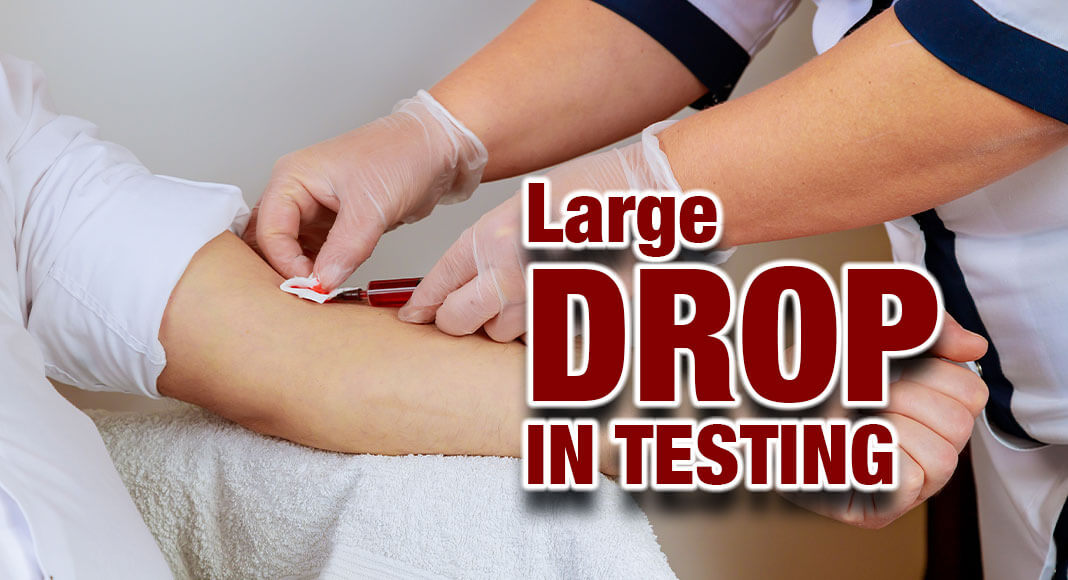
Mega Doctor News
New CDC data published ahead of National HIV Testing Day (Monday, June 27) show a sharp decrease in the number of CDC-funded HIV tests administered in health care and non-health-care settings (43% and 50%, respectively) from 2019 to 2020, the first year of the COVID-19 pandemic. These concerning drops were seen among groups disproportionately affected by HIV, highlighting the urgent need to scale up testing and reduce disparities among the people who could most benefit from HIV prevention and care.
In non-health-care settings—where people who get tested for HIV provide information about race/ethnicity and transmission—reported HIV testing declined:
- 49% among gay and bisexual men
- 47% among transgender people
- 46% among Hispanic and Latino people
- 44% among Black people
To compensate for HIV testing and diagnoses missed during the COVID-19 pandemic, CDC encourages partnerships between state and local health departments, community-based organizations, and health care systems to increase access to HIV testing services, including strategies such as self-testing and routine opt-out screening in health care settings.
HIV testing is the bridge to highly effective treatment and prevention. Delayed diagnoses can lead to negative health consequences and increased HIV transmission. CDC recommends that everyone between the ages of 13 and 64 get tested for HIV at least once and that some people get tested at least annually.
While the full impact of COVID-19 on HIV is not yet known, these concerning findings add to recent CDC data that showed a steep reduction in HIV diagnoses and slowing pre-exposure prophylaxis prescriptions from 2019 to 2020.
To meet rapidly approaching national goals to end the HIV epidemic, the nation must accelerate efforts to protect health and expand access to proven HIV prevention tools nationwide, including focused, innovative local efforts through the federal Ending the HIV Epidemic in the U.S. initiative (EHE). The EHE initiative, which includes an emphasis on the role of routine testing, is intended to decrease disparities among populations most affected by HIV.
To help communities move forward with EHE, the President has requested $850 million in FY 2023. These resources are critical. Efforts must be escalated urgently to equip communities with the resources they need to get back on track and meet national goals.
Jonathan Mermin, MD, MPH,
Director of CDC’s National Center for HIV, Viral Hepatitis, STD, and TB Prevention
“We welcomed 2020 with optimism. New HIV infections were declining, and attention to HIV was increasing. But just as COVID-19 disrupted our lives, it changed the course of HIV prevention. Now we are at a crossroads. Will we accept the massive reductions in HIV testing, or will we bounce back stronger?”
Demetre Daskalakis, MD, MPH,
Director of CDC’s Division of HIV Prevention
“Everyone should enjoy good health—and getting an HIV test is part of a successful plan to do so. Some people may not get tested for many reasons, such as concerns about HIV stigma, homophobia, transphobia, and a host of other -isms and phobias. Or they may not know that an HIV test could benefit them. We must continue working together to overcome these and other factors that stand in the way of equitable HIV prevention and care.”
Find an HIV Test
National HIV Testing Day is observed each year on June 27 to encourage people to get tested for HIV, know their status, and get linked to care and treatment. Find fast, free, and confidential HIV testing at CDC’s Get Tested or by calling 1-800-CDC-INFO (232-4636). HIV self-tests may be purchased at a pharmacy or online or check to see if the local health department or another organization is providing a rapid self-test for a reduced cost or for free.
Additional Resources
CDC Media Fact Sheet: The State of the HIV Epidemic in the U.S.
https://www.cdc.gov/nchhstp/newsroom/fact-sheets/hiv/state-of-the-hiv-epidemic-factsheet.html
CDC’s Role in the Federal “Ending the HIV Epidemic in the U.S.” initiative
https://www.cdc.gov/endhiv/index.html
CDC Media Fact Sheet: HIV and Black/African American People in the U.S.
https://www.cdc.gov/nchhstp/newsroom/fact-sheets/hiv/black-african-american-factsheet.html
CDC Media Fact Sheet: HIV and Hispanic and Latino People in the U.S.
https://www.cdc.gov/nchhstp/newsroom/fact-sheets/hiv/hispanic-latino-factsheet.html
CDC National HIV Testing Day Resource Library









